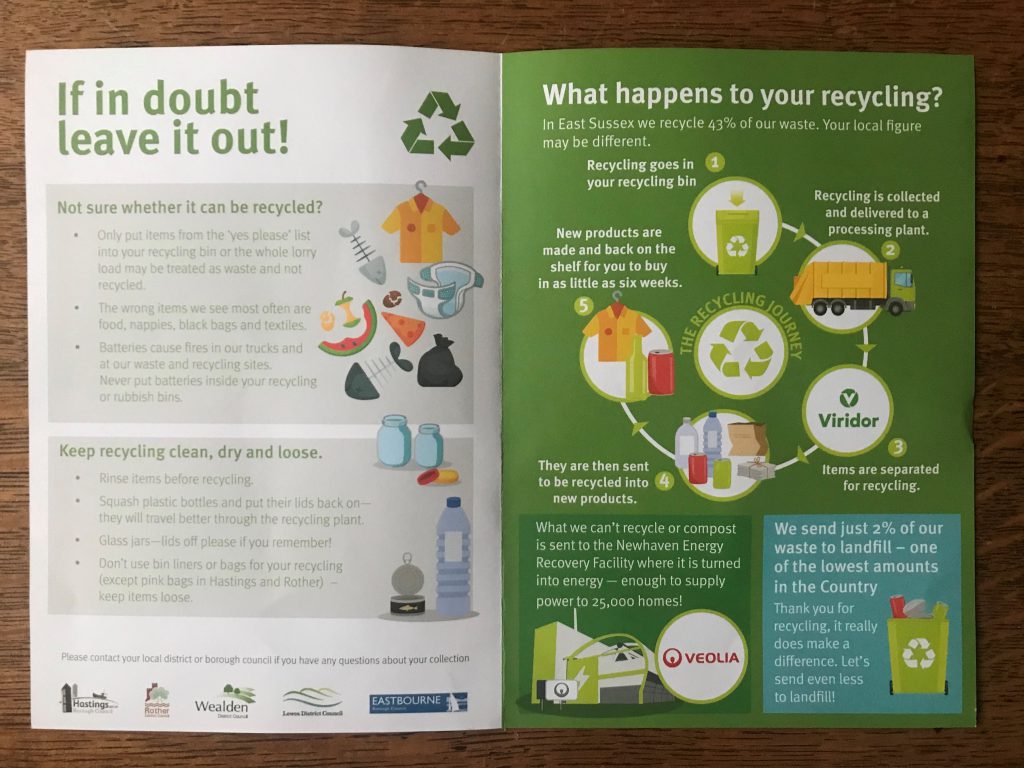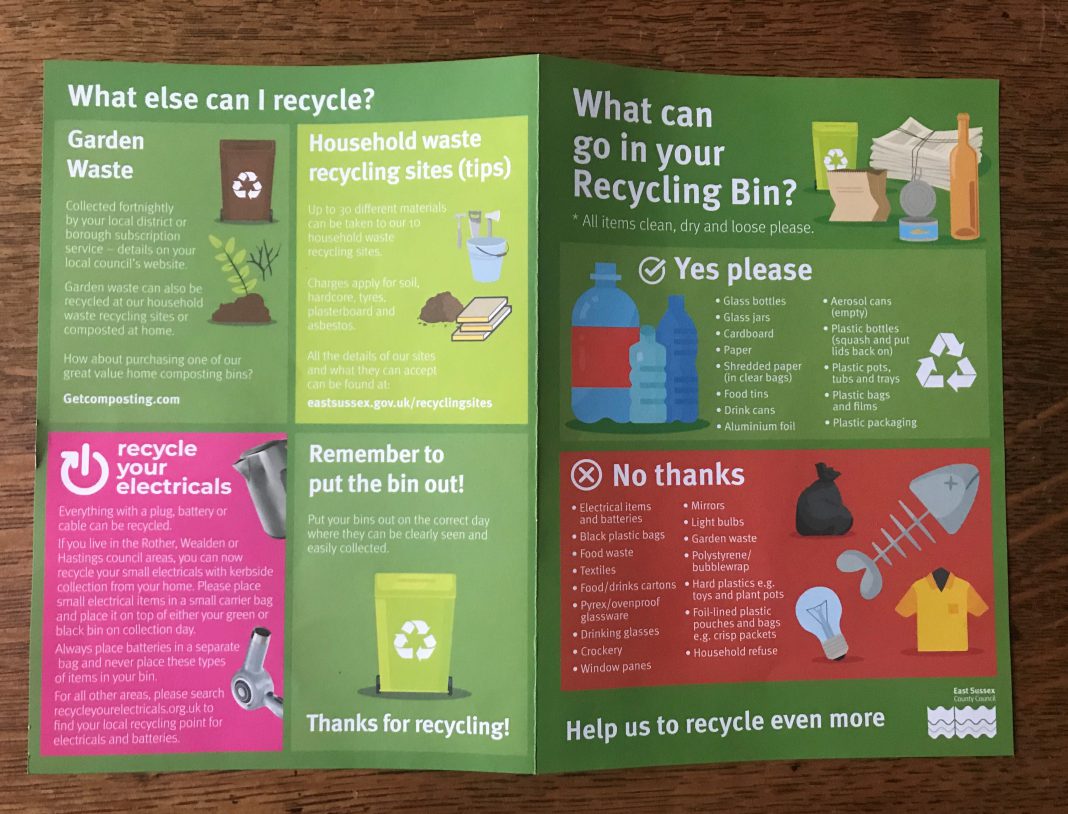Many Rye residents will have received the recent leaflet (in photos) entitled “What to put in your recycling bin” as issued and distributed on behalf of East Sussex County Council (ESCC). It serves as an aide memoir reminding us all what can and can’t be recycled, which bin to put our rubbish in and what happens to it at ‘the other end’.
It can be confusing at times, as what we assume could be recycled often cannot be recycled, so a refresher leaflet should help to remind us about how we can do our bit to reduce landfill, and help in some small way to make the world a better place.
I was prompted to write this article when I was contacted by one of our readers who also received a leaflet, as it seems the message put out by ESCC has been received by residents – but not Rother District Council on behalf of Biffa, or to you and I, the bin men (and ladies).
Our reader had a small electrical item to get rid of and, as per the instructions in the leaflet, left it in a bag on top of the black bin (you can leave it on top of either bin) due to be collected that day but, when her bin was collected, it was returned and the bag containing the electrical item was left inside the empty bin, ready to be taken to landfill when next collected.
Rother phone call is confused
A phone call to Rother District Council (RDC) was met with confusion so was referred to ESCC. According to our reader it transpired that ESCC had not informed RDC that these leaflets were being distributed so the contractors had not been given instructions to react to the content – therefore anything left on top of the bin had no significance for the bin staff.
So, while it is admirable that ESCC has gone to so much time and trouble to formulate, print and distribute the new leaflet, and the message inside is very clear for all to see, it appears that not all those who needed to be notified were communicated with – but, hopefully, all the parties involved have now ‘got the message’
In case any readers are confused by the names Viridor and Veolia on the leaflet (see below) this previous article in Rye News might help. While we see Biffa trucks on the street, the waste and recycling they collect are handled by other companies. Waste for recycling is taken to a Viridor facility in Crayford, Kent and waste from our black bins gets sent to the Veolia facility in Newhaven to be incinerated to generate power.

Image Credits: Nick Forman .




Hopefully of interest to those who wish to recycle more a accurately..but it was easier in someways if you have good eye sight.to read the different numbers on plastic items..Is it 1-5 that can be put in our recycling bin/bag? And also are all plastic carrier bags recycled?
As the information went to all households..even those with pink bag only we have the stickers for Bins…which I presume can’t be recycle!
Positive note I put out an electrical item this morning in a bag that was see through and put it on top of the pink bag…and the person collecting took the Electrical item.
So thank you for contacting the council as it’s worked…
Not sure of the mix up in communications but it’s a worthy aide memoir. How many people realise that bubble wrap can’t be recycled?
It would be helpful if containers were clearly marked as recyclable or not. I find some are, but the lids not – most frustrating.
On a wider note. I am surprised that there is no concerted action to reduce the amount of synthetics used in clothing. Apart from the fact (my opinion) that synthetics stop the skin breathing it would be of great help to producers of natural fibre. The fact that we have a wool mountain and that a fleece no longer pays for the shearing is scandalous. I cannot buy 100% woollen socks, surely a market gap? Reducing synthetics would surely help the environment (Synthetics sent to land fill do not degrade) and farmers both here and in developing countries that produce cotton, hemp, flax, bamboo plus the many animal fibres such as cashmere.
It also would be good if our local supermarket stopped selling fruit and veg in polystyrene trays covered in cling film. Plastic would better if they insist on packaging at least it can be recycled unlike polystyrene.